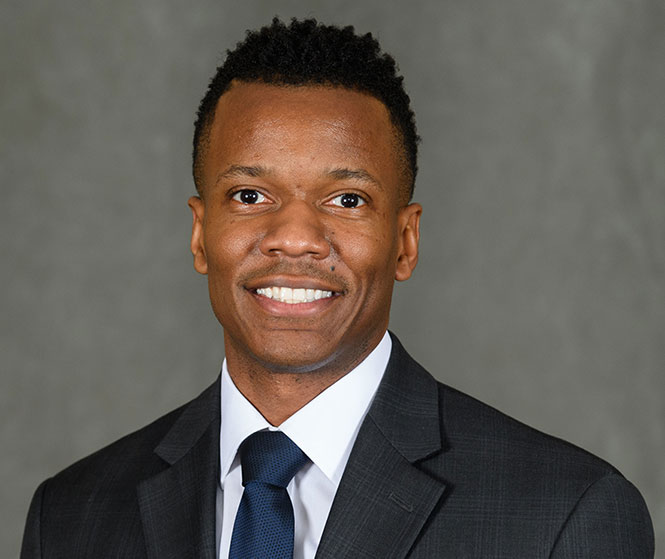

Independence Blue Cross presents Age Fearless with One Day University in Center City
Tuesday, September 20 2022 9:30 am - 1:00 pm
SCHEDULE
9:30 am - 10:30 am
The Power of Mindset: How it Can Affect your Health, Aging, and Happiness
Catherine Sanderson / Amherst CollegeThe Power of Mindset
This presentation describes cutting edge research on the power of one’s mindset – literally meaning the setting of the mind towards a particular set of expectations – on influencing thoughts, feelings, and behavior. In this class, you’ll learn how making subtle tweaks in mindset can lead children to perform better on challenging math tests, college students to show improvements in their vision, and older adults to score higher on memory tasks. You’ll also learn about the substantial impact of mindset on physical health. Would you believe that simple shifts in mindset can lead to faster walking speeds, decreases in blood pressure and body fat, and increases in life expectancy?
At the conclusion of this talk you’ll learn specific (and relatively easy) strategies for changing your own mindset, which can lead to better psychological and physical well-being.
 Catherine Sanderson / Amherst College
Catherine Sanderson / Amherst College
Catherine Sanderson is the Poler Family Professor and former Chair of Psychology at Amherst College and is often cited as the school’s most popular professor. Her research has received grant funding from the National Science Foundation and the National Institute of Health. She has published over 25 journal articles in addition to three college textbooks. In 2012, she was named one of the country’s “Top 300 Professors” by the Princeton Review.
10:45 am - 11:45 am
The Ideas and Legacy of W.E.B. DuBois
Robert Patterson / Georgetown UniversityW.E.B. Du Bois earned his Ph.D. from Harvard University in 1895 and his research interests in race relations and black civil rights animated his entire career. In 1903, he published The Souls of Black Folk, which is a profound collection of essays that examines literature, music, politics, and public policy to analyze how race, racism, and racial animus made it difficult for black people to exercise the rights of citizenship and enjoy its responsibilities in the post-Emancipation era. From his political differences with his contemporaries, including Booker T. Washington, to his introduction of ideas such as double-consciousness, the color-line, and the talented-tenth, W.E.B Du Bois has remained a central figure and interlocutor in African American Studies and other field of inquiry concerned with racial equality, black freedom, and civil rights.
This course explores the big ideas, concepts, and political propositions that Du Bois has offered, and considers their (and his) continued significance and influence American society. The course showcases how Du Bois revised—and, in some instances—renounced some of his previously held ideas as the circumstances and contexts in which he thought, wrote, and lived changed.
 Robert Patterson / Georgetown University
Robert Patterson / Georgetown University
Dr. Robert J. Patterson is a professor of African American Studies and served as the inaugural chair of the Department of African American Studies at Georgetown University (2016-2019). He is the author of Destructive Desires: Rhythm and Blues Culture and the Politics of Racial Equality (Rutgers University Press, 2019) and Exodus Politics: Civil Rights and Leadership in African American Literature and Culture (UVA Press, 2013), co-editor of The Psychic Hold of Slavery: Legacies in American Expressive Culture (Rutgers University Press, 2016), and editor of the forthcoming Black Cultural Production After Civil Rights (University of Illinois Press, Fall 2019). Currently, he is working on a book titled Black Equity, Black Equality: Reparation and Black Communities.
Dr. Patterson’s teaching interests and courses mirror his research projects and he has taught a range of courses that examine black cultural production, racial politics, and the legacies of slavery.
Dr. Patterson has worked with governmental agencies, school systems, and other organizations to develop solutions that increase diversity, cultivate inclusion, and provide equity of access and outcomes.
12:00 pm - 1:00 pm
The Musical Genius of Duke Ellington
Anna Celenza / Johns Hopkins UniversityAbout Duke Ellington and His Musical Style
Edward Kennedy “Duke” Ellington (1899 – 1974) was one of the most prominent musical figures of the 20th century. Although his music was often defined as “jazz,” he sought to create a body of music “beyond category.” In fact, he preferred to be called simply an “American” composer. The breadth of Ellington’s output was astounding. In addition to writing hundreds of jazz standards, including “Mood Indigo” and “Don’t Get Around Much Anymore,” he served as the leader of America’s most stellar big band for nearly a half century and composed numerous film scores, musicals and large-scale orchestrated works. Even more importantly, he was one of the most prominent Black public figures in American history.
Duke Ellington Music & History
Born and raised in Washington, DC, Ellington was acutely aware of American politics. All his life, he served as a leader committed to civil rights, equality, and America’s role in the world. Although nearly 50 years have passed since Ellington’s death, his music still permeates society, not just in the jazz club or concert hall, but also via film, advertising, and the art of sampling. What is it about Ellington and his music that has made his legacy so enduring? Using music examples, film clips, and historic photos, Professor Celenza will explore a range of answers to this question and reveal the genius of Duke Ellington as a pianist, bandleader, composer, and public intellectual.
Discussion Questions From The Musical Genius of Duke Ellington
- How did Ellington’s formative years in Washington DC shape his approach to music composition?
- Ellington belonged to the first generation of musicians raised on recorded music, film, and radio. In what ways do you think this technology helped and/or hurt his career?
- The US State Department’s Jazz Ambassador Program was a product of the Cold War. Do you think jazz served as an effective weapon for promoting Democracy? Why do you think Ellington was chosen for the program in the 1960s?
Learn More about Duke Ellington’s Music
Learn more about Duke Ellington’s music by checking out our wide array of music history lectures here.
 Anna Celenza / Johns Hopkins University
Anna Celenza / Johns Hopkins University
Anna Celenza is a professor of music and creative writing at Johns Hopkins University. She is the author of several books, including Jazz Italian Style: From Its Origins in New Orleans to Fascist Italy and Sinatra, The Cambridge Companion to Gershwin, and Music and Human Flourishing. Her next book, Music that Changed America, will be published next year. In addition to her scholarly work, she has served as a writer/commentator for NPR’s “Performance Today.”

